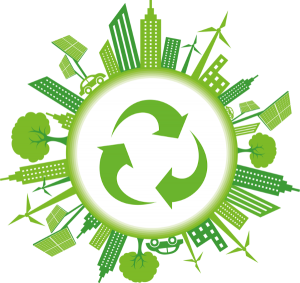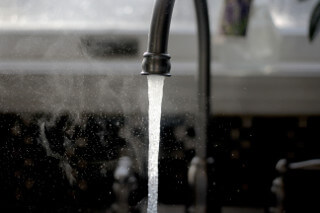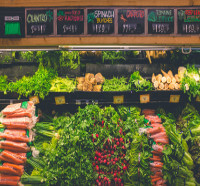 On 11 March 2020, the Commission published its New Circular Economy Action Plan. This document provides the basis for multi-sectoral regulatory work aimed at creating a circular economy by 2050. The plan foresees the introduction of new consumer rights, new ecodesign regulations and the mobilisation of several European research funds. Most impacted sectors are ICT and electronics, batteries and vehicles, packaging, building and construction, food, textiles, water and nutrients. The rules and regulations planned will have an impact on a global level, even for companies which are not present in the Single Market. Indeed, an important part of this plan focuses on the EU’s efforts to impose European standards at the international level.
On 11 March 2020, the Commission published its New Circular Economy Action Plan. This document provides the basis for multi-sectoral regulatory work aimed at creating a circular economy by 2050. The plan foresees the introduction of new consumer rights, new ecodesign regulations and the mobilisation of several European research funds. Most impacted sectors are ICT and electronics, batteries and vehicles, packaging, building and construction, food, textiles, water and nutrients. The rules and regulations planned will have an impact on a global level, even for companies which are not present in the Single Market. Indeed, an important part of this plan focuses on the EU’s efforts to impose European standards at the international level.
In details, the Commission will propose a Sustainable Product Policy Initiative that will extend eco-design directives to the broadest possible range of products. The Sustainable principles will introduce new specific obligations to increase durability, reusability, the right for the consumer to upgradability of the products. In addition to these obligations, new consumer regulations will guarantee consumers a “right to reparation”. These regulations will also reinforce the obligations to inform the consumer about the lifespan of the product and the repair procedures. From 2020 to 2023, the Commission will adopt a number of regulations strengthening eco-design and waste reduction requirements. In addition, strategies on textiles and chemicals will soon be published.
In conclusion, this plan will have very important consequences on all sectors related to vehicles, food, electronics, plastics and textiles. Activities in the sectors concerned will be greatly influenced by these new regulations, from conception to sale. Consultations for several regulations have already begun. All companies concerned must therefore think about intervening in the decision-making process of the European institutions very quickly.

 In December 2019, the new European Commission presented the European Green Deal. The ultimate goal of the European Green Deal is to make the European Union the first climate neutral continent by 2050. To meet this objective, the European Commission will embark on a comprehensive review of existing and ongoing legislative measures and consider rolling out new detailed rules. Aside from the obvious focus on climate neutrality, bold action will be taken in other areas, including energy transition, agriculture, circular economy and sustainable transport. The European Green Deal is not only a political commitment, but a concrete new agenda that will shape European policy for the years to come. In that sense, the European Green Deal will affect all businesses and investors.
In December 2019, the new European Commission presented the European Green Deal. The ultimate goal of the European Green Deal is to make the European Union the first climate neutral continent by 2050. To meet this objective, the European Commission will embark on a comprehensive review of existing and ongoing legislative measures and consider rolling out new detailed rules. Aside from the obvious focus on climate neutrality, bold action will be taken in other areas, including energy transition, agriculture, circular economy and sustainable transport. The European Green Deal is not only a political commitment, but a concrete new agenda that will shape European policy for the years to come. In that sense, the European Green Deal will affect all businesses and investors.
 The public consultations on the robustness of the EU air quality legislations, comprised of the two Ambient Air Quality Directives as well as of the Implementing Decision and the Commission Directive have recently been finalized.
The public consultations on the robustness of the EU air quality legislations, comprised of the two Ambient Air Quality Directives as well as of the Implementing Decision and the Commission Directive have recently been finalized. The European Commission has recently launched the debate on the fitness check of the backbone of its legislation on water protection and management. Therefore, the Water Framework Directive as well as the closely related Groundwater Directive, the Environmental Quality Standards Directive as well as the Flood Directive are currently under review.
The European Commission has recently launched the debate on the fitness check of the backbone of its legislation on water protection and management. Therefore, the Water Framework Directive as well as the closely related Groundwater Directive, the Environmental Quality Standards Directive as well as the Flood Directive are currently under review. The Council of the European Union adopted conclusions on the development of a sustainable EU chemicals policy strategy in June 2019. These conclusions fall within the current 7th Environment Action Plan (EAP), adopted in 2013, which mandated the European Commission to develop a Union strategy for a non-toxic environment that is conducive to innovation.
The Council of the European Union adopted conclusions on the development of a sustainable EU chemicals policy strategy in June 2019. These conclusions fall within the current 7th Environment Action Plan (EAP), adopted in 2013, which mandated the European Commission to develop a Union strategy for a non-toxic environment that is conducive to innovation. The European Commission launched a consultation on the review of State aid framework concerning fishery and aquaculture, which is set to expire in September 2019. The European Commission’s subsequent proposal is expected to be adopted in the fourth quarter of 2020.
The European Commission launched a consultation on the review of State aid framework concerning fishery and aquaculture, which is set to expire in September 2019. The European Commission’s subsequent proposal is expected to be adopted in the fourth quarter of 2020. The European Commission has recently launched a public consultation to gather views on the current performance of the Food Contact Materials (FCM) legislation. This review will affect, among others, packaging and professional food manufacturing, preparation, storage and distribution. The results will feed then into the evaluation of the current legislative framework of FCM rules.
The European Commission has recently launched a public consultation to gather views on the current performance of the Food Contact Materials (FCM) legislation. This review will affect, among others, packaging and professional food manufacturing, preparation, storage and distribution. The results will feed then into the evaluation of the current legislative framework of FCM rules. Starting from January 2018, China notified the WTO that it will ban the importing of 24 categories of waste, including plastics and mixed papers, on grounds of environmental and public health protection.
Starting from January 2018, China notified the WTO that it will ban the importing of 24 categories of waste, including plastics and mixed papers, on grounds of environmental and public health protection. The European Commission has put large supermarket and food retail business under its regulatory radar, in an attempt to rationalize the European food supply chain. The initiative, likely to make its debut as early as in 2018, will place producers and farmers under its aegis, in an attempt to bridle at the hypermarkets power by remedying unfair trading practices and arbitrary contractual clauses.
The European Commission has put large supermarket and food retail business under its regulatory radar, in an attempt to rationalize the European food supply chain. The initiative, likely to make its debut as early as in 2018, will place producers and farmers under its aegis, in an attempt to bridle at the hypermarkets power by remedying unfair trading practices and arbitrary contractual clauses.